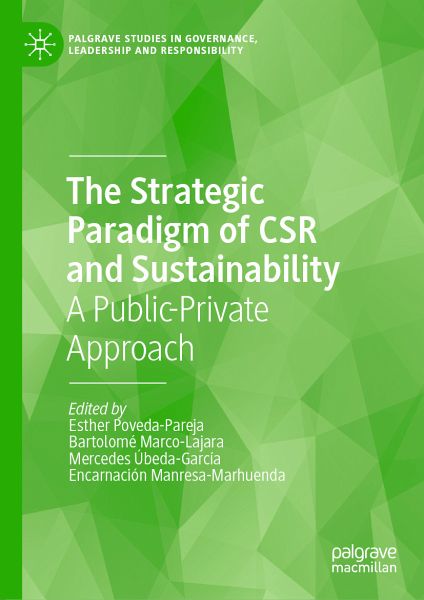
The Strategic Paradigm of CSR and Sustainability (eBook, PDF)
A Public-Private Approach
Redaktion: Poveda-Pareja, Esther; Manresa-Marhuenda, Encarnación; Úbeda-García, Mercedes; Marco-Lajara, Bartolomé
Versandkostenfrei!
Sofort per Download lieferbar
136,95 €
inkl. MwSt.
Weitere Ausgaben:

PAYBACK Punkte
68 °P sammeln!
It has become increasingly clear that promotion of sustainability initiatives by governments and other public institutions alone is not enough to bring about the necessary progress in tackling the 'Grand Challenges' of climate change and inequality. A higher level of involvement is required from companies, as the main agents of economic development. Therefore, research is needed to determine how the desired levels of sustainability can be achieved through each of the spheres (public and private) as well as by considering collaboration between both. This book analyses Corporate Social Responsib...
It has become increasingly clear that promotion of sustainability initiatives by governments and other public institutions alone is not enough to bring about the necessary progress in tackling the 'Grand Challenges' of climate change and inequality. A higher level of involvement is required from companies, as the main agents of economic development. Therefore, research is needed to determine how the desired levels of sustainability can be achieved through each of the spheres (public and private) as well as by considering collaboration between both. This book analyses Corporate Social Responsibility (CSR) and sustainability from a public-private perspective, considering the actions of stakeholders belonging to both the private and public scopes, their ability to collaborate and the paradigmatic relationship between CSR and sustainability as it moves across the public and private spheres. It will be of great interest to students and scholars of sustainability strategy, CSR, policy and corporate governance, as well as internal and external stakeholders engaged in corporate policy and strategic management.
Dieser Download kann aus rechtlichen Gründen nur mit Rechnungsadresse in A, B, BG, CY, CZ, D, DK, EW, E, FIN, F, GR, HR, H, IRL, I, LT, L, LR, M, NL, PL, P, R, S, SLO, SK ausgeliefert werden.












